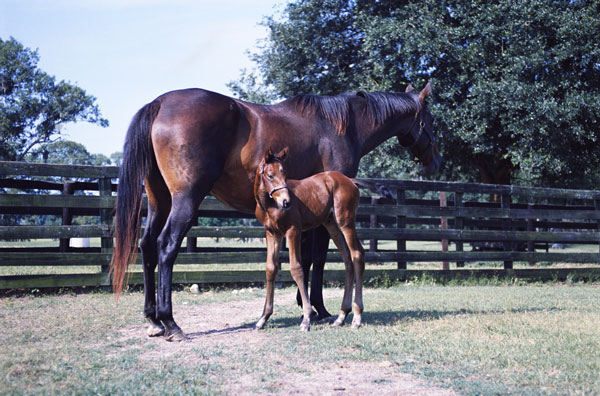
Mandatory testing of all equine in Kleberg County was ordered by Texas Animal Health Commission (TAHC) officials on March 8.Equine Piro testing expands in South Texas into the northern part of the county.So far, 19 horses on six premises in the southern Kleberg County t have tested positive for Equine Piroplasmosis (EP).

Mandatory testing of all equine in Kleberg County was ordered by Texas Animal Health Commission (TAHC) officials on March 8 and premise inspections, which began the first week of April, have so far identified 19 horses on six premises in the southern region of the county that have tested positive for Equine Piroplasmosis (EP), a blood-borne protozoal disease.
Dr. Thomas Lansford, Director for TAHC Region 5 in Beeville, says about 747 animals on 282 premises had been tested in the county as of last Friday. Efforts now turn to northern parts of Kleberg County as animal health officials continue the mandatory testing process. The initial Kleberg County test zones extended south from Escondido Creek to the Kleberg-Kenedy County line.
EP-infected animals can develop fever, anemia, yellowing of the membranes in the eyes and mouth, and dark brown to red-tinged urine. Some animals die from the disease, while others never get sick. All equine in Texas testing positive for EP are required to be held in quarantine, but a treatment protocol has been developed that can often clear the infection and lead to the release of quarantined animals.
"We have been working steadily since early April and will continue until we are certain every equine in the county is tested," Lansford said.
While the disease is not considered endemic in Texas or in the United States, isolated outbreaks have occurred. TAHC designated Kleberg County equine (horses, donkeys, ponies, mules, and zebras) as high risk for exposure to EP after a single horse tested positive through routine testing earlier this year. Horses with persistent EP infections are often carriers of the parasites that cause the disease and are potential sources of infection to other horses.
"There are a lot of questions as to how this disease arrived in Kleberg County. We aren't certain where it originated or how it has spread. The disease is most often transmitted from a positive horse to a negative horse by blood transfer from dirty instruments, such as common syringes, but we are always concerned about the role ticks can play once the disease is discovered in multiple animals," Lansford said.
Like what you are reading? Subscribe to Southwest Farm Press Daily and get the latest news right to your inbox!
South Texas has a large and diverse population of ticks. Horses visiting pastures with infected tick populations can become infected. Once positive horses are treated or removed, the tick populations within those pastures free themselves of the disease in approximately one year, and it will be safe to put negative horses back in the pasture.
The disease affects all equine but is not transmissible to humans.
"Because Piro is considered an animal disease foreign to the U.S., it is important we make every effort to find undetected cases in the area," said Dr. Dee Ellis, Texas State Veterinarian. "We believe the Piro situation related to tick transmission in Texas is limited to just a few South Texas counties. The TAHC is asking for the support of local horse owners to ensure this testing effort is a success."
Lansford says while mandatory quarantine is required for all animals testing positive, state and federal animal health officials have been working with property owners where horses tested positive to establish effective quarantine facilities on their premises.
All equine owners in the county who have not had their equine tested are strongly encouraged to contact the TAHC as soon as possible to schedule an appointment. Equine owners can call (361) 676-0979 to set up an appointment. The test is free of charge.
"We greatly appreciate the cooperation of the equine owners and veterinary practitioners of Kleberg County, and the high level of voluntary compliance with the mandatory testing requirement," said Lansford. "We look forward to working with the remaining owners of untested equine and the local veterinarians as we strive to complete the area test in Kleberg County. It is important that all equine are tested as soon as possible."
Kleberg County equine owners and/or veterinary practitioners who have questions should contact the TAHC Region 5 Office in Beeville at (361) 676-0979. For more information on Piroplasmosis they can also visit www.tahc.state.tx.us/animal_health/equine/piro.html.
You may also like:
VS confirmed in Colorado horse, movement rules issued
Smugglers bringing diseased horses across International border
About the Author(s)
You May Also Like



